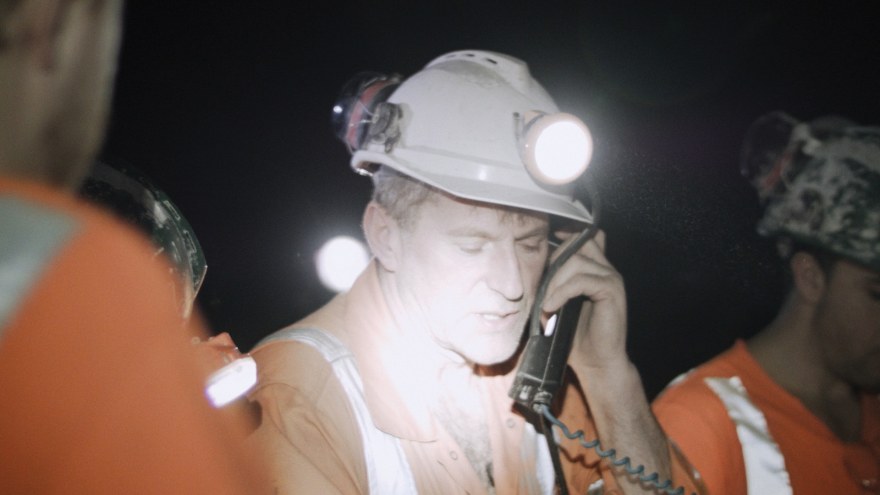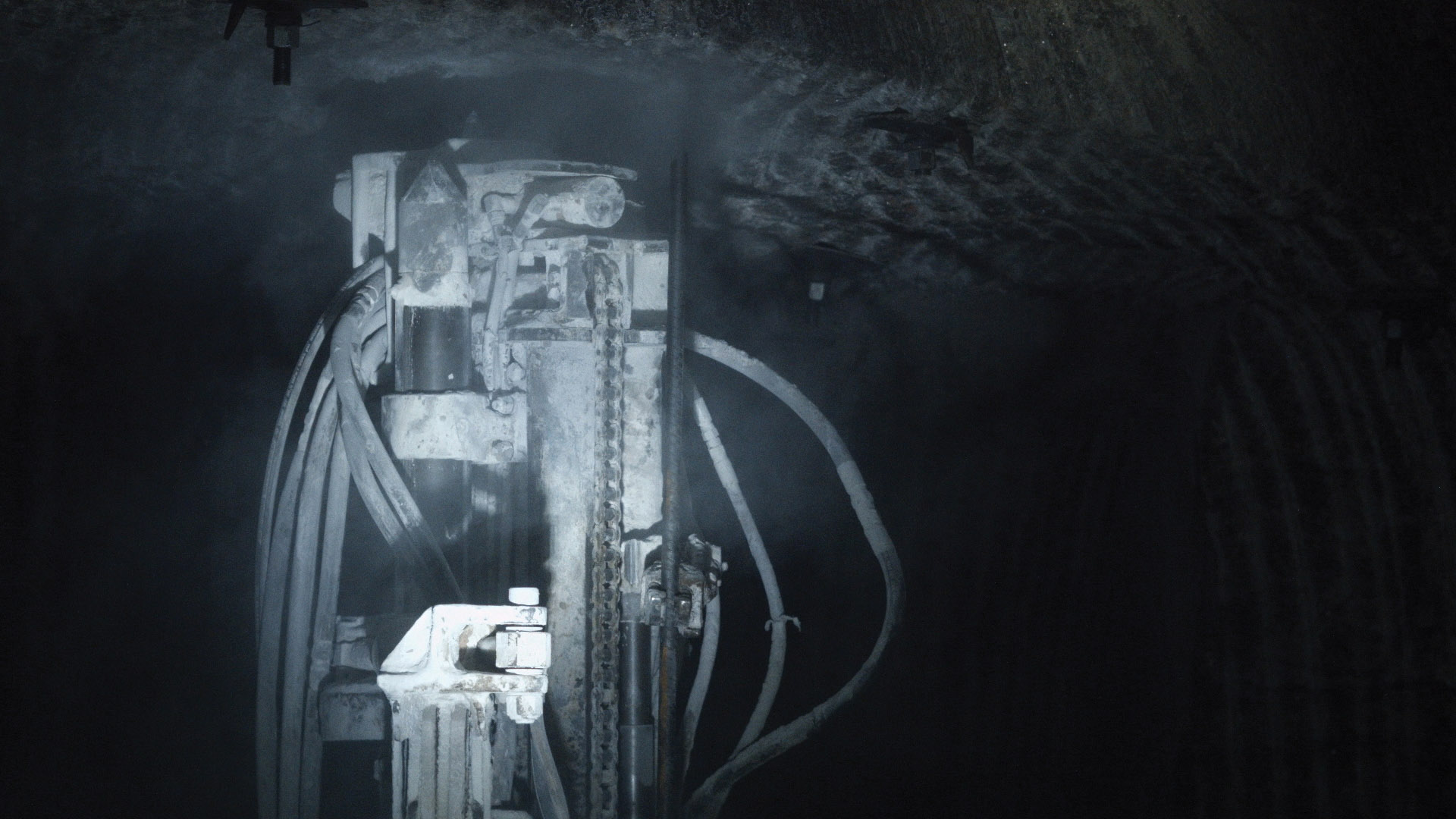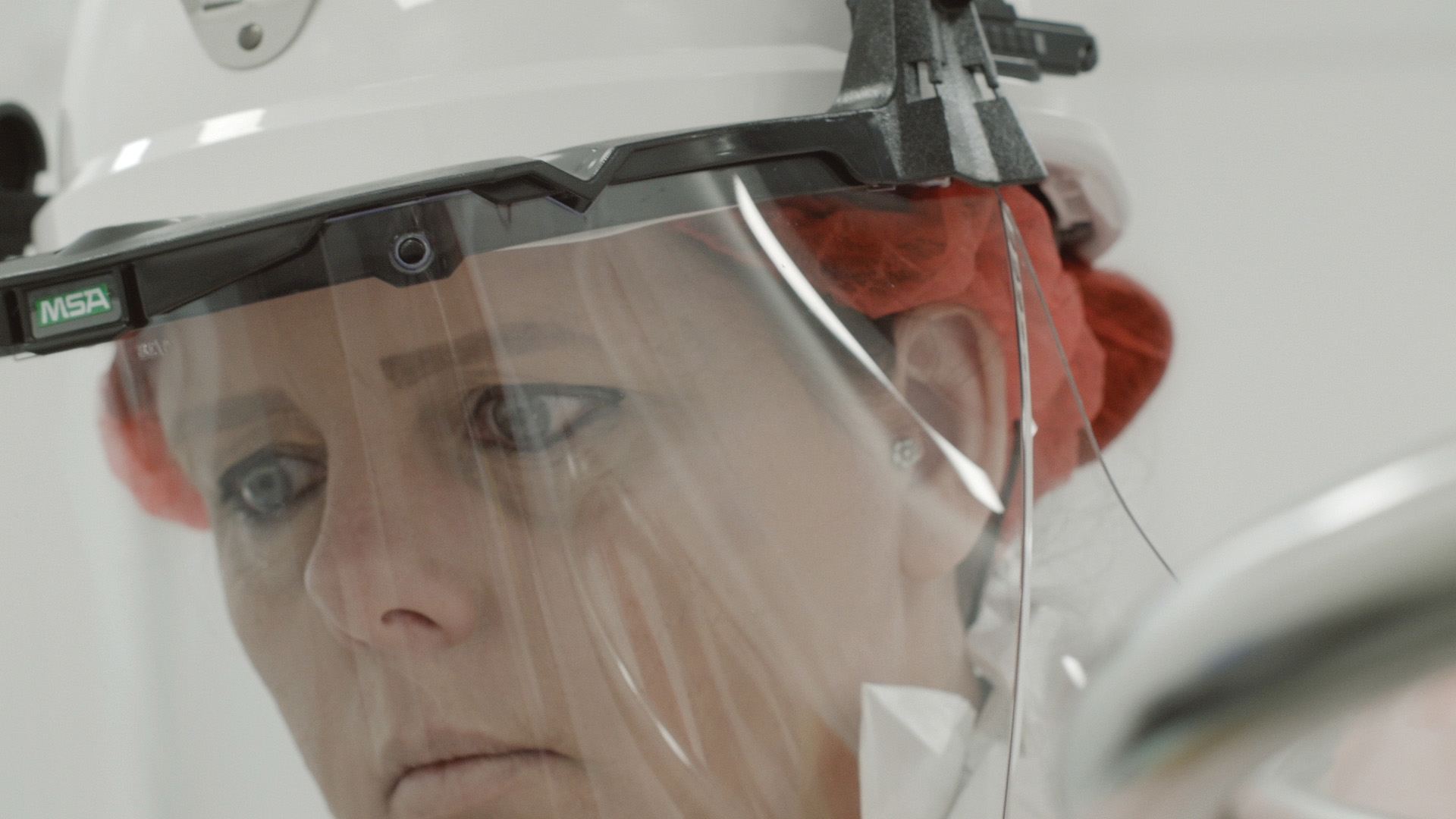Tea time with Under the North Sea
Interview with Federico Barni and Alberto Allica, codirectors of Under the North Sea
How did you learn about dark matter studies?
Federico: It never was something that registered much with me, I am more of a life sciences person and so what initially attracted me to Boulby mine was the presence of salt-loving extremophiles! And I think that’s the same with Alberto. Dark matter detection however is the longest running research project in the facility and the reason it was built in the first place, so it does structure the understanding that the mine’s communities have of each other and it ended up structuring the argument of our film as well.
Alberto: We became more and more interested in the dark matter research itself and the way it’s carried out as we visited the place – from the contrast between the data scientists who strive to extract deep underground and the miners physically extracting salt, to the combination of heavy industry and particle physics in the same, isolated space and the ramifications of that marriage.
Why were you interested in this deep underground world?
Several reasons. We were interested in life in extreme environments, both on a human scale as well as beyond. The first attempt to get this going was actually in the summer of 2016, right after Brexit. It was a really confusing time and we felt that this place where two groups as different as international research scientists and local miners are physically removed from the surface of the earth and forced to work together could have offered us some insight on a lot of things. Of course our preconceptions of both groups were simplistic, but that was our starting point. Additionally the place was being used as an analog for extra-terrestrial environments, so this sci-fi element existing on the edge of the real was irresistible. We also realised that the darkness of the underground is a really powerful filmmaking tool that we were really drawn to. It’s not so dissimilar from the experience of being at the cinema. There were many little islands of light and life connected by thousands of kilometres of never-ending darkness, which we had to rearrange and recombine like a puzzle until it made sense, and while you can’t see the connections directly you just have to infer them to come to your conclusions.
How did you work with the scientists? Did you come and shoot before writing a script?
Federico: The scientists were the natural point of contact for us as we come from that background and are familiar with their way of operating (or so we thought). We built a really good relationship with the entire team, and it gave us an entry point that mirrored our own gaze from which to look at this place and its communities and interpret their experiences.
Alberto: The first time we were invited to the mine was as part of a symposium of scientists from all over the world. They were all from different disciplines but in some shape or form their research could benefit from being exposed to this extreme underground environment. It was incredible to be thrown in the middle of this, but it also did expose our shortcomings with regards to our general approach to making this film. When we were invited back a year later we had a really solid idea not only of what exactly we wanted to investigate but also of how to go about capturing what we needed for that. We moved away from a pure observational style and structured each scene around shots while laying down some basic guidelines for ourselves that would focus the visual and narrative approach. So yes – in that sense we had a script, which we developed around the material we shot on our first trip.
How much are you interested in the question of exploring and do you have further projects on this theme?
Federico: I try to use filmmaking as a way to connect with different worlds and push myself physically and personally. I am working on a project that explores these themes through archeology and another set in some abandoned mines that I researched and explored last summer. But I am trying to ask the right questions about exploration and frontiers instead of glorifying them, which is tempting because of how fascinating they are. Exploration is certainly mind expanding, but it can also carry the germ of escapism and imperialism. No matter how far out on the edges it takes you, these places might be new to you but they almost invariably are someone or something else’s home already.
Alberto: I do really think that every film you set out to make is in some way an exploration. And often there is no concrete or final answer but only more questions. It’s kind of an endless, expansive iterative process. What I’m most drawn to is exploring that which is hidden, often in plain sight. What is unknown or not fully understood, although right in front of you. I’m currently working on a short that explores the process of understanding death from a child’s perspective through the particular cultural and historical lens of Spain, where I’m from.
What do you think the future holds for short films?
Federico: Digital platforms and tools have introduced many different kinds of people to film as an art form and in a sense short formats have so much potential on that front. The challenge is to create an environment where this impulse can be explored and celebrated instead of going to die a quick death as content in the wasteland of social media.
Alberto: It’s a tricky one, but we may not be so far off. All it takes is someone to recognise and seriously bet on the uniqueness of the short film format, with its tradition of experimenting and telling stories in new ways, in a long-lasting way.
If we were to go back into lockdown, what cultural delights would you recommend to alleviate our boredom?
Federico: In keeping with the themes of the interview and contradicting something I just said about escapism, I am going to recommend some good sci-fi books I read over the past year. The Noumenon series by Marina J. Lostetter, Agency by William Gibson and A Memory Called Empire by Arkady Martine.
Alberto: Just to contrast Fed’s choices, I’m going to recommend two books and one film I’ve consumed over the past year which are completely unrelated to the themes we’ve talked about. Autobiography of Red by Anne Carson – a wonderful re-imagining of the Greek mythological tale of Geryon – Her Body and Other Parties by Carmen Maria Machado – an amazing collection of short stories – and finally the second episode of Steve McQueen’s Small Axe – Lovers Rock.
Under the North Sea is part of Lab Competition L4.










